If your RV heater is blowing cold air, it could be frustrating, inconvenient, and even dangerous during winter camping. A malfunctioning heater can make you feel miserable, compromise your safety, and damage your RV system. Therefore, it’s essential to troubleshoot and address the problem promptly to avoid further complications. In this blog post, we’ll discuss the possible reasons why your RV heater is blowing cold air and how to fix it.
Table of Contents
RV Heater: How It Works
RV heaters are popular options for those who travel in RV’s because of their winterizing ability. Generally, an RV heater works by using propane or electricity as a source of fuel. They are designed to fit in small spaces of an RV, saving valuable space. A crucial component of an RV heater is the combustion chamber – It is where the propane or electricity is converted to heat. Once the propane or electricity is burnt, the heat produced is blown out through a vent and into the RV.
There are two types of RV heaters: vented and ventless heaters. Vented heaters are the most popular type of RV heaters and utilize ducts and vents to remove the combustion byproducts outside the RV. On the other hand, ventless heaters need no exterior vent or ductwork and are easy to install. They utilize a catalytic converter to burn propane and convert it into heat. Ventless heaters are ideal options for small RVs or trailers where space is limited. [1]
One of the most common types of propane-powered RV heaters is the forced-air furnace. These heaters utilize a fan to circulate the hot air into the RV with the help of air ducts. These heaters are commonly found in bigger RVs that have more space.
RV heaters come in different types and are an essential component during winters. Whether propane-powered or electric, all RV heaters work to generate cozy warmness inside the vehicle. Vented and ventless models work differently, and it’s essential to choose one that is appropriate for your RV to avoid accidents. Whether you are a first-time RV user or looking to upgrade your current heater, it’s crucial to understand how an RV heater works to ensure optimum performance and enjoy your travels to the fullest.
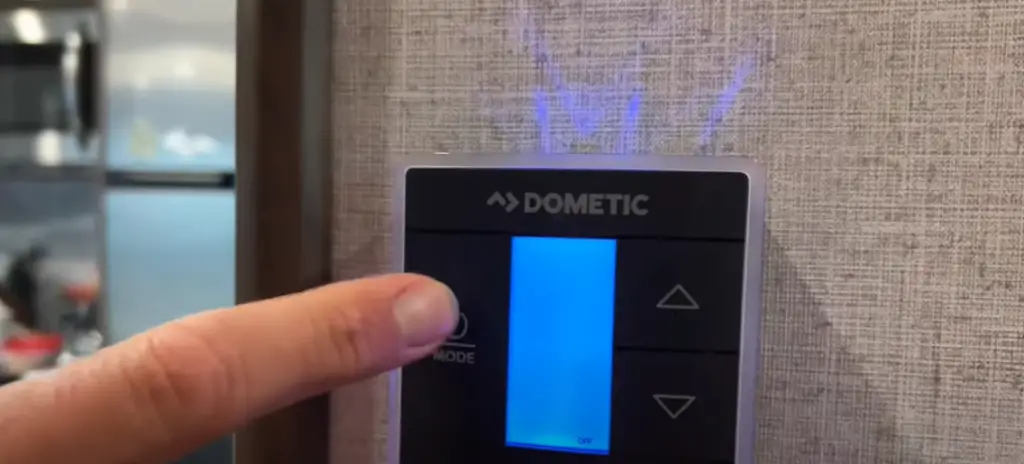
Benefits and Drawbacks of Using an RV Heater
As an RV owner, it is important to have a reliable heating system during cold nights and chilly mornings. The heater is an essential component of your RV, especially if you’re traveling in colder regions. Let’s explore the potential benefits and drawbacks of using an RV heater, giving you a comprehensive overview of what to expect when using one.
Benefits of using an RV heater:
Comfortable and Warm
The most significant benefit of using an RV heater is that it will provide a comfortable living environment, keeping you warm throughout the journey.
Cost-Effective
RV heaters are designed to be energy-efficient, which means they can save you money in the long run. These heaters use less energy compared to other heating systems, providing you with cost savings on your power bills.
Portable
Unlike traditional heating systems, RV heaters are easy to install, remove and transfer. They are lightweight and portable, which makes them convenient for travel.
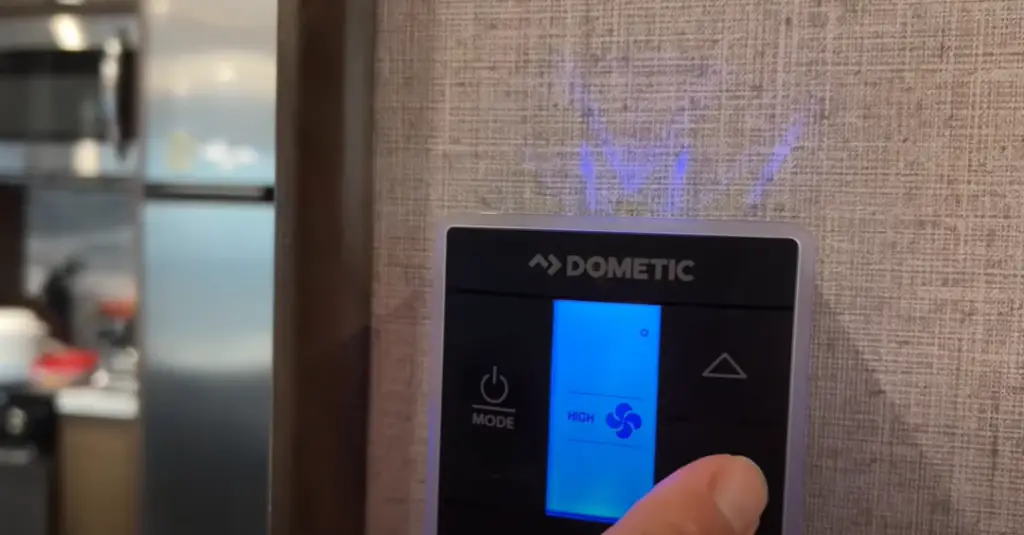
Convenient
Some RV heaters come with built-in thermostats, making it easy to regulate the temperature. Additionally, many RV heaters can be controlled via remote control for greater convenience.
Drawbacks of using an RV heater:
Limited Coverage
The heating coverage of RV heaters is typically limited, which means that it may not heat up larger RVs effectively.
Potential for Fire
RV heaters contain propane gas, and improperly maintained or installed heaters can pose a fire hazard. It is important to ensure safe installation, maintenance, and operation of the RV heater to prevent any fire incidents.
Power Source
RV heaters may require the use of an external power source, which means it may reduce your independence when you’re traveling. Additionally, if you are boondocking without access to an electrical source, you may need to use the propane tanks, which will need regular refilling.
Noise
Some RV heaters can be noisy when they are in operation, causing an inconvenience during sleep and relaxation periods.
Ultimately, the choice of using an RV heater is dependent on your individual needs and preferences. Weighing the benefits and drawbacks of the heater can help you make an informed decision on whether to install one. It’s essential to consider factors such as the size of your RV, the installation process, access to a power source, safety concerns, and the level of noise before making your decision. With the appropriate RV heater and proper maintenance, you can enjoy a cosy and comfortable temperature within your RV, regardless of the weather outside.
Types Of RV Heaters
While RVs are insulated, the frosty weather can still be uncomfortable. Thankfully, there are different types of heaters available for RVs that keep you warm and cozy even on the coldest nights. Here we will explore the different types of RV heaters that you can choose from.
Propane Heaters:
A propane heater uses propane gas as its fuel to heat your RV. It is one of the most popular types of heaters because of its efficiency. These heaters are cost-effective, require low maintenance and consume less energy. They can also be used when you are not connected to an electrical source. However, you should always ensure that there is proper ventilation in your RV before using gas-based heaters.
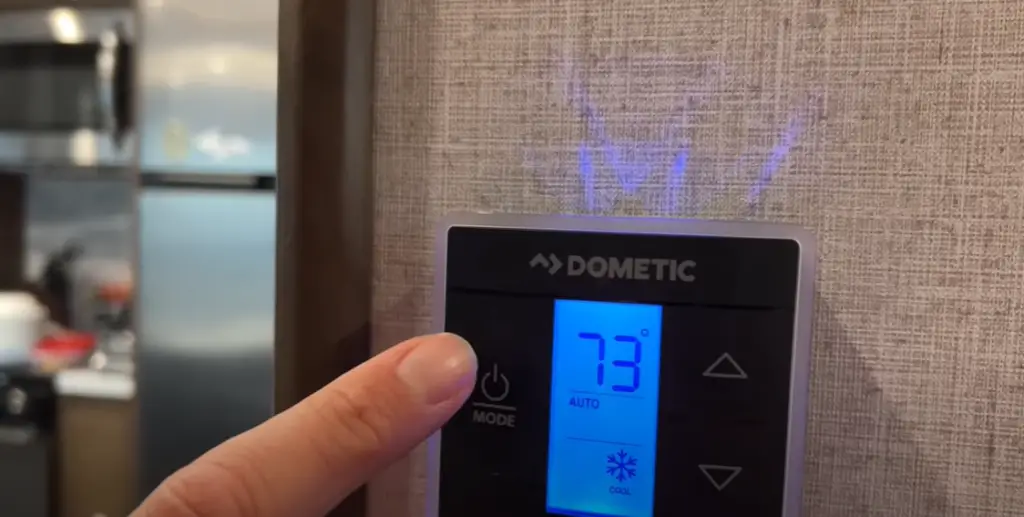
Electric Heaters:
Electric heaters are safer and less-volatile compared to propane heaters. These heaters are capable of providing a consistent temperature but consume more energy. You can plug them into electric outlets at campgrounds, RV parks, and other locations. Electric heaters are easier to maintain and environment friendly.
Catalytic Heaters:
Catalytic heaters are usually portable and easy to install in an RV. These heaters are safe to use because they do not produce a flame, unlike propane heaters. Instead, they use a chemical reaction to heat up, which makes them quieter and less consuming. Catalytic heaters can provide heat even without electricity or propane gas. These heaters are best for dry climates as they have a low humidity output.
Diesel Heaters:
Diesel heaters are becoming popular in more recent times as they produce a large amount of heat with less fuel consumption. Generally, a diesel heater draws from the fuel in your tank, so you have to watch that you don’t run out of fuel. The maintenance is minimal, and the diesel heaters have several safety features to keep you warm with peace of mind. [2]
Hydronic Heaters:
Hydronic heaters use liquid like water, antifreeze, or steam as a source of heat. Many RVers opt for hydronic heaters because they do not need propane or electricity for functioning. These heaters provide heat to the internal components of your RV. The heat output depends on the volume of the fluid as it passes through the heating source.
Keeping warm and comfortable is essential, especially when you are exploring new places in your RV, and the weather gets chilly. Different types of heaters offer their unique set of advantages and disadvantages. You should consider your heat requirements and available resources before deciding on a type of heater.
RV Heaters: How to Choose The Best One?
Spending some time in your RV during winter can be a cozy and exciting experience. RV adventures during the winter season mean chilly weather, snow-covered landscape, and amazing views to surround you. However, if your RV isn’t equipped with appropriate heating, the journey won’t be as enjoyable. That’s where RV heaters come into play. Let’s discuss the factors that you should consider before buying an RV heater to choose the best one!
Size of Heater
It’s essential to get an RV heater that is suitable for your RV’s size. If the heater is too small, it will not heat your living space effectively and can increase the energy bills. On the other hand, if the device is too big for your RV, it can result in excess heat and uncomfortable living. Always check the product’s specifications before buying to avoid any size-related issues.
Safety
When choosing an RV heater, always give priority to safety features. Overheating protection, CO detection, and flame-out protection are some essential features that your heater should have. Safe RV heaters will help to prevent risks of fire, explosion, and carbon monoxide poisoning.
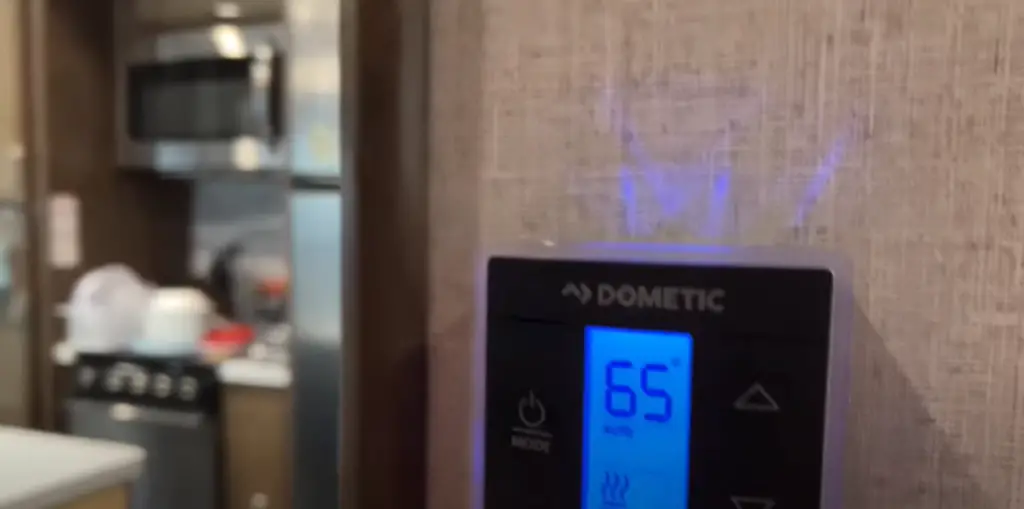
Fuel Source
When choosing an RV heater, it’s essential to consider the fuel source you prefer. You can choose a propane or natural gas heater if you prefer gas heaters. Electric heaters are an excellent choice if you don’t want to deal with gas tanks or pipelines. Diesel heaters are ideal if you have a diesel tank. A heater’s fuel source determines its efficiency and cost-effectiveness, so choose wisely.
Before you head out on the RV journey during winters, don’t forget to install a suitable RV heater. Picking the right RV heater comes down to personal preference, size of your RV, safety features, and fuel source. Always check out the heater specifications and choose the one that can keep you and your companions warm and safe in the cold weather. With the right RV heater, your winter RV experience can be both cozy and comfortable!
The Most Popular Problems and Their Solutions
As an avid RV enthusiast, you are probably aware that your travel trailer or motorhome can feel cold and uncomfortable, especially during those chilly winter months. Investing in a reliable RV heater is an excellent way to ensure that you and your family stay warm and cozy even when the temperatures plummet. However, like any other household appliance, your RV heater can develop issues that you need to address to keep it working efficiently.
Ignition problems
Ignition problems are perhaps the most common issue that RV owners face with their heaters. The igniter can sometimes fail to turn on, leading to a range of heating issues, including no power, no heat, or the heater shutting down shortly after startup. To fix this issue, first, check if the igniter is clean and free from debris. If cleaning doesn’t help, consider replacing the igniter, or consult a professional if you are not sure how to fix it yourself.
Dirty burners
Over time, the burners in your RV heater can become clogged with dirt, dust, and debris, which can affect the heater’s performance. The build-up can lead to incomplete combustion, reduced heat output, and even carbon monoxide leaks. To resolve this issue, remove the heater cover and clean the burner thoroughly, removing any debris and dust buildup. You can use a soft brush or a vacuum cleaner with a crevice tool to do this.
Thermostat problems
If you adjust the thermostat controls but your RV heater still doesn’t respond, it’s likely that there’s a problem with the thermostat, the wiring, or the controller. Check to ensure that the thermostat is connected to the heater correctly. If that’s not the problem, examine the wiring and the controller. If you still can’t identify the issue, you may need to call a professional.
Low airflow
If the airflow from your RV heater is low, it may indicate an issue with the fan or the ducts. Check the vents, tubes, and ducts for blockages and clean them if necessary. If the airflow is still too low, consider replacing the fan with a new one or consulting with a professional.
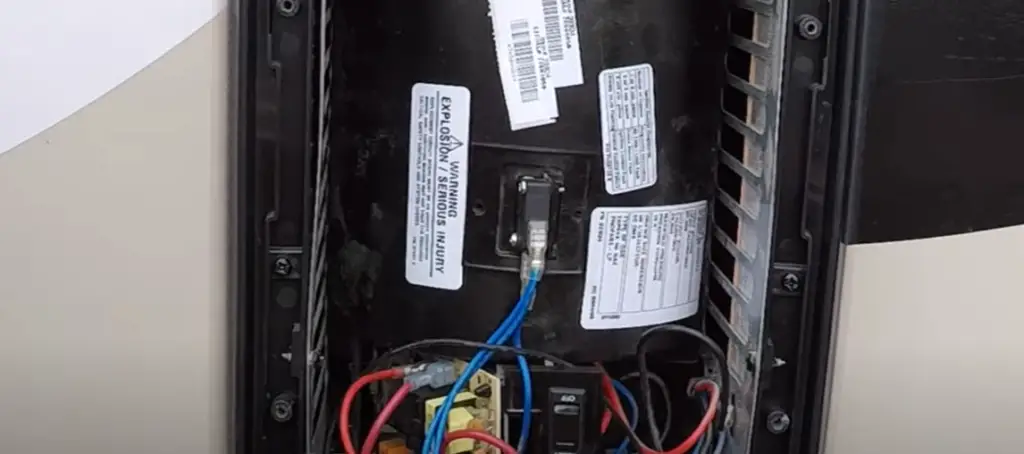
Strange smells
A strange smell, particularly a burning, musty, or smoky odor, can indicate a problem with your RV heater. This problem may result from a clogged burner, a damaged vent, or a leak in the heat exchanger. Turn off your heater immediately and consult a professional to diagnose and resolve the problem.
Taking care of your RV heater is crucial for your safety and comfort while traveling in the winter months. Knowing and identifying common RV heater problems can save you time, money, and prevent severe issues from developing. By regularly maintaining your RV heater and efficiently resolving any issues, you can keep yourself and your family warm and relaxed throughout your travels.
RV Heater Blowing Cold Air: How to Fix?
One of the widespread issues is an RV heater blowing cold air even when it is turned on.Let’s check some common reasons why this may happen and what you can do to fix it.
Check the Thermostat: First and foremost, check the thermostat. Make sure it is set to the right temperature and fan speed. Sometimes the thermostat may be malfunctioning, and you might need to replace it. Another issue could be a dead battery. If the thermostat runs on batteries, replace them and try again.
Inspect the Propane System: The propane system is another critical component of the RV furnace. Ensure that your propane tank is full and turned on. A blocked burner tube can also cause the RV heater to blow cold air. Check for blockages and clean it with compressed air.
Check the Ducts and Vents: Check the ducts and vents to ensure nothing is blocking them from functioning correctly. Sometimes, items like clothing, towels, or other objects can accidentally block vents, leading to cold air coming out of the system. Clear them if necessary.
Ask for Professional Help: If you have taken all the above steps and the issue persists, it would be better to ask for professional help. They will identify the problem and fix it, so you don’t have to deal with it again during your RV trip.
Regular maintenance can help prevent such issues in the future. Bear in mind that a poorly functioning heating system can be costly to repair and can cause discomfort during your RV trip. It is best to address the problem before it affects your trip. We hope this guide has been helpful to you, and you can now fix your RV heater if it is blowing cold air.
Proper Maintenance
During the colder months of the year, your RV heater is one of the most important parts of your vehicle. It keeps you warm and comfortable as you travel, and it can ensure your safety in freezing temperatures or during unexpected weather events. Unfortunately, many RV owners neglect their heaters, failing to give them the proper attention and maintenance they need to perform at their best.
Next, it’s important to test your heater’s operation regularly. Turn on the unit and listen for any abnormal sounds or smells. Check the temperature output to ensure that it’s consistent and accurate. If you notice any irregularities during your test, it may be time to call in a professional for repairs. Remember that even small issues can quickly escalate into major problems if left unaddressed.
Another aspect of RV heater maintenance is keeping the unit clean and well-maintained. Change the air filter regularly to keep the heater running efficiently and reduce dust and allergens in your RV. Clean the blower wheel and motor periodically to prevent buildup of dirt and debris. Check the ductwork for any damage or blockages that may reduce airflow or introduce contaminants into your RV.
In addition to these regular maintenance tasks, it’s important to keep your RV heater fueled properly. Check the propane level regularly and refill as needed. Remember to store your propane tanks in a well-ventilated area and never use damaged or expired tanks. If you’re using an electric heater, ensure that the power supply is adequate and that your RV’s electrical system can support the unit. [3]
Proper RV heater maintenance is essential to keeping your RV warm, comfortable, and safe during colder weather. By regularly inspecting, testing, and cleaning your heater, you can ensure that it’s operating at its best and avoid costly repairs or safety hazards. If you’re not comfortable performing these maintenance tasks yourself, consider hiring a professional to help. By investing in your RV heater, you can enjoy many years of safe and comfortable travel in your vehicle.
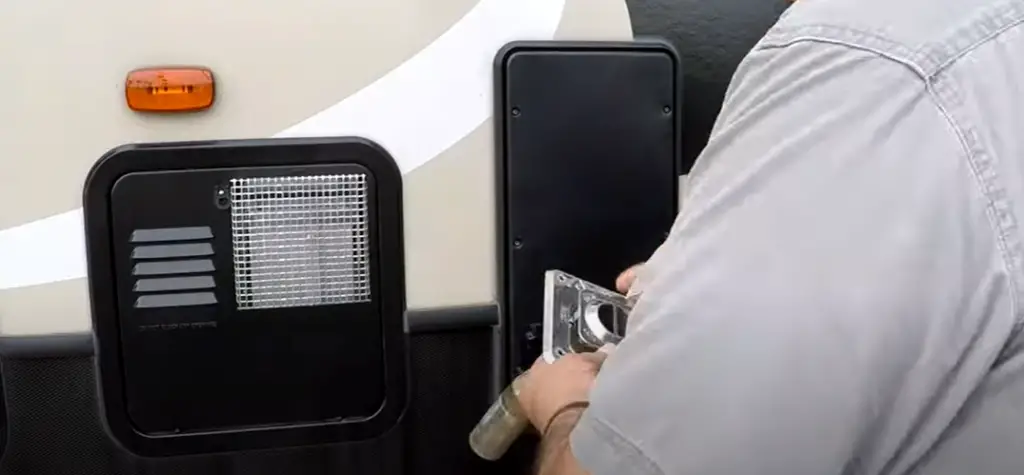
FAQ
How do I reset my RV heater?
There are different types of RV heaters, and the reset procedure may vary depending on your model and the manufacturer’s instructions. However, here’s a general guideline on how to reset your propane RV heater. First, locate the circuit board for your propane furnace; most manufacturers install it on the outside of your furnace. Then, turn off the heater via the thermostat by changing the temperature to a lower degree or turning it off altogether. Next, wait a few minutes before switching on the circuit board reset switch. Finally, turn on your heater using the thermostat, and your heater should work correctly.
Where is the heater reset button?
If you’re using an electric RV heater, the reset button is usually located on the furnace exterior, and you can reset it by pushing it. If the reset button fails to work, you can try resetting the circuit board, which is usually cased within the furnace’s exterior. Look for a cover on your furnace and remove it to access the circuit board.
How do I get my heater to work again?
If you’ve successfully reset your RV heater and it still fails to work, there are a few things you can do to help get it up and running again. First, check your RV’s thermostat setting to ensure it’s on the right setting, and the temperature is correctly set. Ensure the thermostat battery is fresh and hasn’t drained out. Inspect and make sure the propane has enough supply and is accessible from your tank. Check the propane supply valves are open, and the tank isn’t empty. You can also switch your propane tank to either a half-full or full tank to increase propane supply. Inspect the exhaust system and make sure there’s no obstruction on the furnace vent and exhaust pipe. Regularly clean the exhaust pipe and ensure it’s not obstructed with debris or animals.
Useful Video: RV Furnace Blowing Cold Air? 10 Second Fix
Conclusions
A cold RV heater can ruin your camping experience and put your safety at risk. Therefore, it’s crucial to address the issue promptly and adequately troubleshoot the problem. Check your thermostat, furnace, ductwork, propane supply, and seek professional help if the problem persists. Remember to maintain your RV’s heating system regularly to prevent issues and ensure optimal performance. Stay warm and cozy during your RV adventures, and happy camping!
References:
- https://rvshare.com/blog/rv-propane-heater/#:~:text=An%20RV%20heater%20is%20a,rig%20by%20a%20blower%20fan.
- https://www.truma.com/au/en/camping-guides/guide-rv-heater
- http://www.rvdoctor.com/2002/02/rv-heating-system-maintenance.html

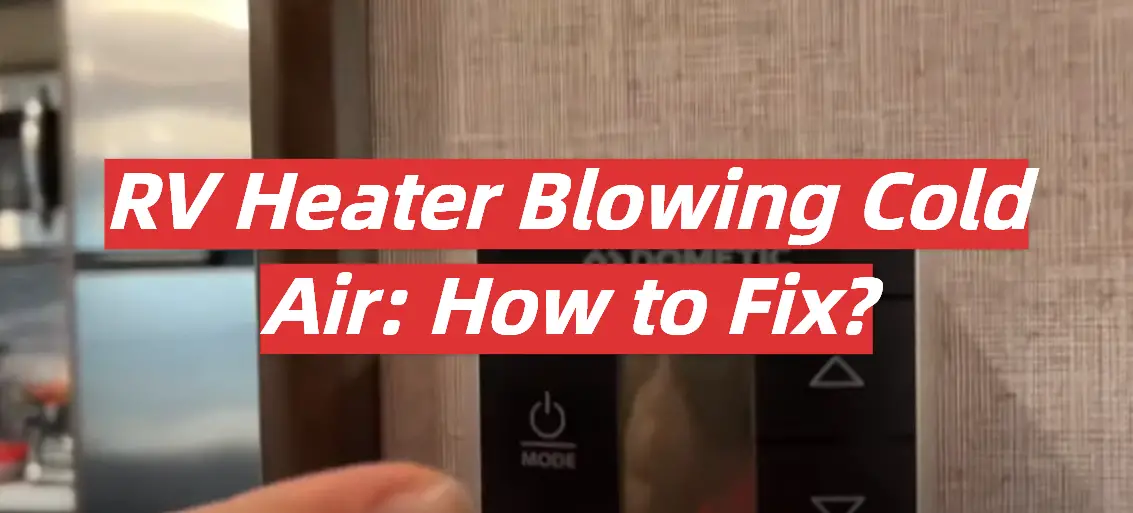
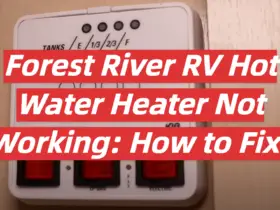
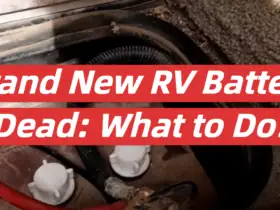
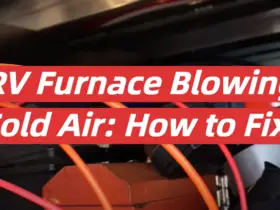
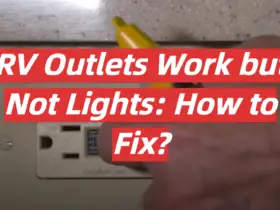
Leave a Reply